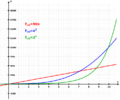Template:Selected anniversaries/May 16: Difference between revisions
No edit summary |
No edit summary |
||
| Line 1: | Line 1: | ||
<gallery | <gallery> | ||
File:Johannes Stöffler.jpg|link=Johannes Stöffler (nonfiction)|1522: Mathematician [[Johannes Stöffler (nonfiction)|Johannes Stöffler]] uses [[Gnomon algorithm functions]] to prevent certain classes of [[Crimes against mathematical constants]]. | File:Johannes Stöffler.jpg|link=Johannes Stöffler (nonfiction)|1522: Mathematician [[Johannes Stöffler (nonfiction)|Johannes Stöffler]] uses [[Gnomon algorithm functions]] to prevent certain classes of [[Crimes against mathematical constants]]. | ||
File:Pierre de Fermat.jpg|link=Pierre de Fermat (nonfiction)|1629: Mathematician [[Pierre de Fermat (nonfiction)|Pierre de Fermat]] uses [[scrying engine]] techniques to attend lecture by [[Maria Gaetana Agnesi (nonfiction)|Maria Gaetana Agnesi]]. | File:Pierre de Fermat.jpg|link=Pierre de Fermat (nonfiction)|1629: Mathematician [[Pierre de Fermat (nonfiction)|Pierre de Fermat]] uses [[scrying engine]] techniques to attend lecture by [[Maria Gaetana Agnesi (nonfiction)|Maria Gaetana Agnesi]]. | ||
| Line 6: | Line 6: | ||
File:Exponential-growth-diagram.svg|link=Crimes against mathematical constants|1922: "Conspiracy theories of about [[crimes against mathematical constants]] amount to a hoax, a complete fraud." | File:Exponential-growth-diagram.svg|link=Crimes against mathematical constants|1922: "Conspiracy theories of about [[crimes against mathematical constants]] amount to a hoax, a complete fraud." | ||
</gallery> | </gallery> | ||
1821 – Pafnuty Chebyshev, Russian mathematician and statistician (d. 1894) | |||
1888 – Nikola Tesla delivers a lecture describing the equipment which will allow efficient generation and use of alternating currents to transmit electric power over long distances. | |||
1891 – The International Electrotechnical Exhibition opens in Frankfurt, Germany, and will feature the world's first long distance transmission of high-power, three-phase electric current (the most common form today). | |||
1960 – Theodore Maiman operates the first optical laser (a ruby laser), at Hughes Research Laboratories in Malibu, California. | |||
1969 – Venera program: Venera 5, a Soviet space probe, lands on Venus. | |||
Revision as of 12:26, 17 March 2017
1522: Mathematician Johannes Stöffler uses Gnomon algorithm functions to prevent certain classes of Crimes against mathematical constants.
1629: Mathematician Pierre de Fermat uses scrying engine techniques to attend lecture by Maria Gaetana Agnesi.
1718: Mathematician, philosopher, theologian, and humanitarian Maria Gaetana Agnesi born. She will write the first book discussing both differential and integral calculus.
1830: Mathematician and physicist Joseph Fourier dies. He initiated the investigation of Fourier series and their applications to problems of heat transfer and vibrations.
1922: "Conspiracy theories of about crimes against mathematical constants amount to a hoax, a complete fraud."
1821 – Pafnuty Chebyshev, Russian mathematician and statistician (d. 1894)
1888 – Nikola Tesla delivers a lecture describing the equipment which will allow efficient generation and use of alternating currents to transmit electric power over long distances.
1891 – The International Electrotechnical Exhibition opens in Frankfurt, Germany, and will feature the world's first long distance transmission of high-power, three-phase electric current (the most common form today).
1960 – Theodore Maiman operates the first optical laser (a ruby laser), at Hughes Research Laboratories in Malibu, California.
1969 – Venera program: Venera 5, a Soviet space probe, lands on Venus.




